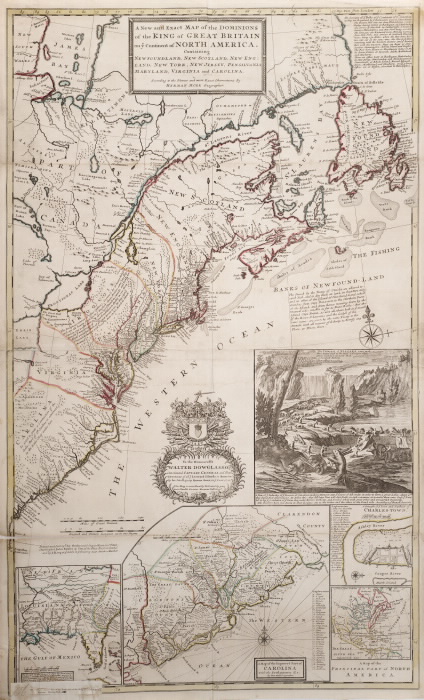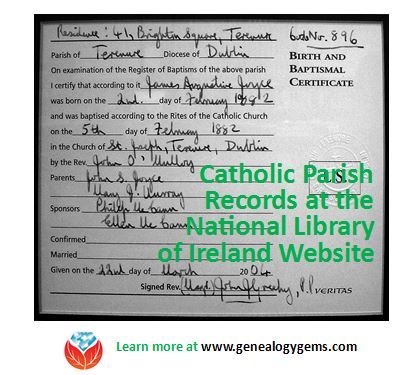Free Genealogy Records from Around the World: Newly Online!
Free genealogy records, newly available online, may be able to take you around your ancestor’s world! This week’s record destinations include Australia, Belgium, Brazil, Bolivia, Canada, Chile, Dominican Republic, France, Italy, Netherlands, Nicaragua, Russia, and South Africa.

Civil registration records–key genealogical resources–from several countries are among the free new family history records online in recent days and weeks. But you’ll also find probate records, church records, military personnel records, and even a digital archive meant to preserve ancient aboriginal languages. Which might mention your ancestors?
Argentina
Over 100,000 indexed names have been added to FamilySearch’s free collection, Argentina, Entre Ríos, Catholic Church Records, 1764-1983. According to a collection description, it includes “baptisms, confirmations, marriages and burials for cities in the province of Entre Ríos.”
Australia
An exciting new Australian website houses a digital archive of Aboriginal and Torres Strait Islander language materials. It includes texts, audio, video, and ebooks about Australia’s First Nations languages. The hope of the site is to be a digital repository for gathering, preserving, and sharing materials that in effect preserve these languages and revitalize their use. The site managers will continue to work with partners to bring more content to the site. Click here to read more about the site’s launch, and click here to access it directly.
Belgium
Two free Belgian civil registration collections at FamilySearch.org have been updated:
Both of these collections are comprised of civil registration of births, marriages, and deaths from the Belgium National Archives, as well as marriage proclamations, marriage supplements, and some original indexes. Additional images will be added as they become available.
Brazil
Several free Brazilian genealogy records collections have been updated at FamilySearch.org. Among them are the following:
- Pernambuco, Civil Registration, 1804-2014 (more than 300,000 newly indexed records)
- Piauí, Civil Registration, 1875-2013 (nearly 150,000 newly indexed records)
- Brazil, São Paulo, Immigration Cards, 1902-1980 (over 20,000 newly indexed records)
Bolivia
Over 300,000 indexed names have been added to FamilySearch.org’s enormous free collection of Bolivia Catholic Church Records, 1566-1996. The collection hosts over 1.5 million digitized images of Catholic Church records created by parishes in Bolivia. “These records include: baptisms, confirmations, marriages, pre-marriage investigations, deaths, indexes and other records. Some of these records have been indexed and are searchable as part of this collection. Additional indexed records will be published as they become available.”
Canada
Library and Archives Canada continues to update its free Personnel Records of the First World War database. So far, the database includes “digitized files for many individuals of the Canadian Expeditionary Force and the Royal Newfoundland Regiment and Newfoundland Forestry Corps (courtesy of the Rooms Provincial Archives).”
Newly digitized CEF files are added to the references every two weeks, states the collection’s landing page. To date, over 461,000 of an expected 640,000 files have been added. “Library and Archives Canada is digitizing the service files systematically, from box 1 to box 10686, which roughly corresponds to alphabetical order,” explains a blog post. “Please note that over the years, the content of some boxes has had to be moved and, you might find that the file you want, with a surname that is supposed to have been digitized, is now located in another box that has not yet been digitized.”
Chile
FamilySearch.org has updated its free collection, Chile Civil Registration, 1885-1903. These include “births, marriages, and deaths for various localities in Chile from 1885 to 1903. For a complete list of all the provincias and comunas included in this collection, see the Provinces of Chile – Civil Registration coverage table. Only records from a few localities have been indexed. More records and images will be added as they become available.” Need help reading these? FamilySearch suggests using this Spanish Genealogical Word List, which also links to other translation tools.
Dominican Republic
Over 175,00 indexed names have been added to FamilySearch’s free collection, Dominican Republic Civil Registration, 1801-2010. Spanning over 200 years, the collection includes images of births, marriages, and deaths as well as some divorces and indexes. “Some of these records have been indexed and are searchable as part of this collection,” states the collection description. “Additional images and indexed records will be published as they become available. These records were obtained from public access sources in the Dominican Republic.”
France
FamilySearch has updated its collection of indexed Catholic parish record images for Coutances et d’Avranche Diocese, 1533-1894. Baptisms, marriages, and burials are all included. “Parishes within this diocese are within the boundaries of the department of Manche,” states a collection description. “French commission for Informatics and Liberties (CNIL) does not allow publication of sensitive data below 150 years.”
Italy
FamilySearch continues to publish more Italian civil registration records! These are some of the latest:
- Asti, 1803-1814, 1911-1935. Over 50,000 indexed records have been added to this existing collection.
- Bergamo, 1866-1901. Over 25,000 indexed names have been added to this database.
- Chieti, 1866-1930. Over a half million browsable images comprise this new collection.
- Macerata, 1808-1814. Over 90,000 browsable images are in this new collection.
Netherlands
Just shy of a million records have been added recently to FamilySearch’s free collection, Netherlands, Archival Indexes, Miscellaneous Records. “Archives around the Netherlands have contributed indexes which cover many record sources, such as civil registration, church records, emigration lists, military registers, and land and tax records,” says the collection description. “These records cover events like birth, marriage, death, burial, emigration and immigration, military enrollment and more. These indexes were originally collected, combined and published by OpenArchives.”
Nicaragua
There are now over two century’s worth of records in the free FamilySearch collection, Nicaragua Civil Registration, 1809-2013. It includes “births, marriages, deaths, and other records created by civil registration offices in various departments of Nicaragua.” Civil registration in Nicaragua didn’t begin until 1879, and it appears that most records in this collection date from that year or later.
Paraguay
Nearly 125,000 browse-only images have been added to FamilySearch.org’s free collection, Paraguay Miscellaneous Records, 1509-1977. According to the site, “These records include two complete collections: Sección Nueva Encuadernación (Rebinding Section) and Sección Propiedades y Testamentos (Properties and Wills Section). Copies of the original records are housed at the Archivo Nacional in Asunción, Paraguay. The “Propiedades y Testamentos” section can give a brief look at the personal wealth of clerics, economic bases of resident foreigners in Paraguay, or the fortunes of a given family over a period of time.”
Russia
FamilySearch.org has updated its free collection, Russia, Samara Church Books, 1779-1923. It includes “images and partial index to records of births and baptisms, marriages, deaths and burials performed by priests of the Russian Orthodox Church in the province of Samara. These records were acquired from the state archive in that province.” Another brief statement in the collection description illustrates the incremental and ongoing nature of record additions to FamilySearch: “Currently this collection is 4% complete. Additional records will be added as they are completed.”
South Africa
Over 40,000 indexed records have been added to the free FamilySearch.org collection, South Africa, Transvaal, Probate Records from the Master of the Supreme Court, 1869-1958. The records are described simply as “probate records from the Master of the Supreme Court, Transvaal, South Africa. Original records are located in the Transvaal Archives Depot, Pretoria, Republic of South Africa.
Spotlight on probate records
 Probate records detailed the final settling of our ancestors’ financial assets. They often contain rich genealogical information and interesting insights into a person’s life. They are among the many records you might find at courthouses and government archives. More U.S. probate records are coming online (click here to learn more), but even if you have to visit a courthouse yourself or hire someone to do it for you, it’s often worth it. Click here to read why.
Probate records detailed the final settling of our ancestors’ financial assets. They often contain rich genealogical information and interesting insights into a person’s life. They are among the many records you might find at courthouses and government archives. More U.S. probate records are coming online (click here to learn more), but even if you have to visit a courthouse yourself or hire someone to do it for you, it’s often worth it. Click here to read why.
Thanks for sharing this post with those who will want to know about these free genealogy records online!







